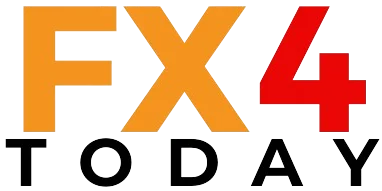Tether CEO Denies Reports as U.S. Investigates Considers Sanctions
Overview of Allegations and the CEO’s Response
Tether, a prominent cryptocurrency company known for its stablecoin USDT, has been the center of recent controversy. Reports from The Wall Street Journal indicate that U.S. authorities, particularly the Manhattan prosecutors, are investigating Tether for alleged violations of anti-money laundering (AML) and sanctions laws. Amidst these reports, Tether’s CEO, Paolo Ardoino, categorically denied these claims, accusing the media of recycling old, unverified information.
Key Allegations Against Tether
The allegations suggest that Tether’s USDT may have been used to fund illegal activities like drug trafficking and terrorism, raising concerns about money laundering risks. Moreover, the U.S. Treasury Department is considering sanctions against Tether, which could prohibit U.S. citizens from doing business with the company. Allegations tie Tether’s cryptocurrency to sanctioned groups, including Russian arms dealers and Hamas. Ardoino responded on social media, stating: “As we told WSJ, there is no indication that Tether is under investigation. WSJ is regurgitating old noise. Full stop.”

What Sanctions Could Mean for Tether
If sanctions are imposed, it would mean significant restrictions for U.S. users and companies regarding transactions involving Tether. Here’s a closer look at the potential impacts of these sanctions.
Implications of Sanctions for U.S. Users
Sanctions could mean a complete freeze on U.S. citizens’ ability to use USDT, potentially destabilizing a portion of the U.S. cryptocurrency market. Since Tether’s USDT is a popular stablecoin, sanctions may disrupt trading volumes, particularly within decentralized finance (DeFi) platforms.
Global Market Effects
Considering Tether’s daily transaction volume of approximately $190 billion, sanctions could also affect global markets. Many international transactions rely on Tether’s liquidity, particularly in regions where the U.S. dollar is inaccessible or restricted, such as Venezuela and Russia. This limitation could reduce liquidity in international cryptocurrency markets, prompting regulatory responses from other countries to either restrict or adjust their Tether-related policies.
Background on Tether’s Stablecoin USDT
Tether’s stablecoin, USDT, is pegged to the U.S. dollar, providing a less volatile cryptocurrency option. Unlike Bitcoin or Ethereum, USDT maintains a stable value, appealing to users in regions with restricted access to the U.S. dollar. With over $190 billion traded daily, Tether plays a significant role in the global cryptocurrency market.
Tether’s Use in Restricted Economies
Tether’s stability and dollar peg make it a preferred asset for users in economies with limited U.S. dollar access, such as those under international sanctions. Individuals in these regions often use Tether for transactions and savings, benefiting from the perceived stability of USDT without direct access to physical U.S. currency.
History of Criticism and Transparency Concerns
September Report on Tether’s Transparency Issues
In September, Consumers’ Research released a report that criticized Tether’s lack of transparency and questioned its reserves. The report highlighted Tether’s failure to conduct a complete audit of its dollar reserves, despite previous promises dating back to 2017. Comparing Tether’s operations to the collapsed cryptocurrency exchange FTX, the report raised concerns about Tether’s use in avoiding international sanctions.
Past Transparency Issues
Tether has faced years of scrutiny over its reserve practices. Initially, the company claimed each USDT was backed 1:1 by actual U.S. dollars in reserve. However, subsequent disclosures revealed that Tether holds a variety of assets, not exclusively cash, to back its USDT issuance. Critics argue this lack of transparency raises questions about Tether’s stability in a crisis, as it’s unclear if all USDT holders could redeem their tokens for actual dollars.

Tether’s Measures to Combat Misuse
Despite its denials of involvement in illegal activities, Tether has implemented several measures aimed at reducing misuse of its currency. The company has partnered with blockchain analysis firms to monitor and trace suspicious transactions. These collaborations are intended to bolster its defenses against illicit use while maintaining Tether’s presence in global markets.
Partnering with Blockchain Analysis Firms
Tether has joined forces with several blockchain analysis companies specializing in tracking and monitoring crypto transactions for potentially illegal activities. These partnerships allow Tether to follow money flows and address suspicions about unlawful usage.
Commitment to AML Compliance
Tether has consistently reiterated its commitment to complying with AML regulations. The company asserts that it has a zero-tolerance policy toward illegal activities and is prepared to take additional steps if regulatory concerns arise. This commitment has included regular disclosures about its reserve backing and policy updates.
Tether’s Response to Allegations
Tether’s leadership has refuted the ongoing investigation reports, dismissing them as speculative and unfounded. CEO Paolo Ardoino maintains that Tether has not received any official communication or warnings from regulatory agencies and accuses media outlets of spreading outdated rumors.
CEO Paolo Ardoino’s Public Statements
Ardoino was quick to respond on X (formerly Twitter), denying the allegations and casting doubt on the accuracy of The Wall Street Journal’s report. He emphasized Tether’s adherence to regulatory standards, pointing out that no official body has contacted Tether regarding any such investigation.
Addressing Historical Allegations
Over the years, Tether has consistently denied accusations of facilitating money laundering or sanctions evasion. The company asserts that the scale of its operation and adherence to global AML protocols make it unlikely to serve as a vehicle for illegal activities. Nonetheless, the ongoing scrutiny reflects the high stakes for Tether in maintaining credibility and regulatory compliance.
The Future of Tether Amid Scrutiny
The regulatory landscape for Tether remains uncertain, with potential sanctions and investigations posing challenges to the company’s future. Although Tether denies any wrongdoing, regulatory agencies may continue to monitor the stablecoin sector closely, particularly given its influence on global markets.
Potential Scenarios for Tether
- Increased Compliance Requirements: Tether may face stricter requirements to increase its transparency, such as providing full, regular audits of its reserves. Increased regulatory pressure could prompt Tether to further integrate AML protocols.
- Implications for Stablecoin Markets: If Tether is subject to sanctions, users may seek alternatives like USD Coin (USDC) or other emerging stablecoins to ensure compliance with regulatory standards. A transition to alternatives could shift the balance of the stablecoin market.
- Enhanced Scrutiny for Other Stablecoins: The ongoing scrutiny of Tether may extend to other stablecoin providers, potentially reshaping the landscape for dollar-backed cryptocurrencies. This broader regulatory push may lead to more standardized practices across the stablecoin sector, impacting users worldwide.
Think Tether
As Tether faces allegations of violating sanctions and AML laws, the company’s future in the U.S. market remains uncertain. Despite Tether’s denial of involvement in any illicit activity, its history of transparency issues has kept it under scrutiny from regulators and watchdog groups. While Tether’s partnerships with blockchain analysis firms highlight its efforts to prevent illegal use, the potential for U.S. sanctions could impact its role in the global market.
The implications of regulatory actions on Tether could lead to significant shifts in the cryptocurrency landscape, affecting both international users and the broader stablecoin ecosystem. As the case unfolds, Tether’s response and adaptation to potential sanctions and regulatory requirements will shape its future in the cryptocurrency market.







